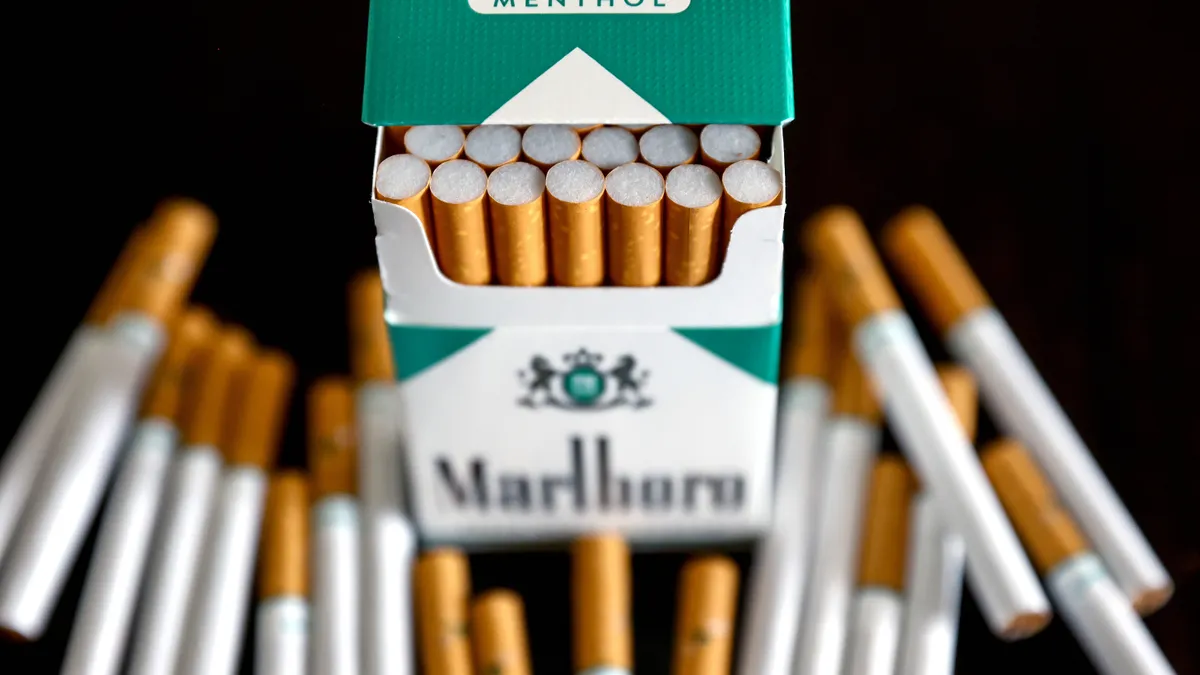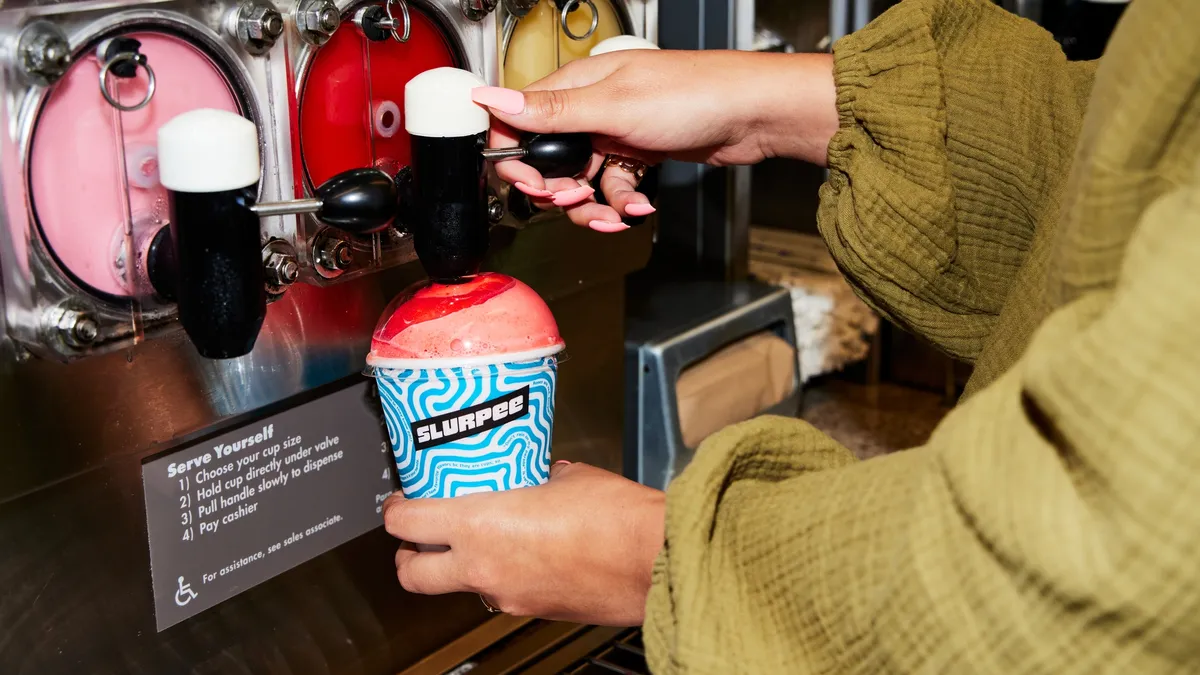Dive Brief:
- The U.S. federal government has pushed a proposed menthol cigarette ban back to March of 2023, or even later, according to a notice from The White House.
- Menthol cigarettes made up more than a third of all smokes sold in 2021, according to data from the U.S. Centers for Disease Control. Convenience stores account for the vast majority of cigarette sales.
- Some state and localities have already passed laws targeting non-tobacco flavors in a number of nicotine-containing products, including cigarettes, vapes and more.
Dive Insight:
While the delay is only a few more months, it gives c-store operators a bit more breathing room before they need to deal with the effects such a ban would have on sales in the tobacco category.
Limited bans that include menthol cigarettes are already impacting convenience stores. 7-Eleven Inc. reported in its second-quarter earnings that the impact of the ban on its California stores, which make up a sixth of 7-Eleven’s North American footprint, was so severe that it caused a nearly 1% drop in overall comparable sales.
NACS fears this ban would have a similarly deleterious effect on a wider scale.
“History has proven that prohibition of a legal product that has an established user base doesn’t work and has negative consequences for our communities,” stated Anna Blom, NACS director of government relations, in the association’s latest release on the proposed ban.
The federal rule, which was first proposed over a decade ago, is intended to improve the overall health of the country by getting rid of the flavoring, which it believes “would reduce the appeal of cigarettes, particularly to youth and young adults.” This is in part because the menthol creates a cooling sensation in airways and makes the smoke easier to inhale, according to the CDC.
The ban was expected to be finalized in August of this year, then got pushed back again. The FDA sent the rules to the White House in October for review. The ban would not target individual smokers, but instead is aimed at distributors and retailers, The Washington Post quoted Rep. Robin L. Kelly (D-Ill.) as saying.
Even after the rule is finalized, litigation is expected to push implementation back even further. This bore out in California last year, where the flavor ban’s passage in November 2022 was followed immediately by a lawsuit from a group led by tobacco company RJ Reynolds.






